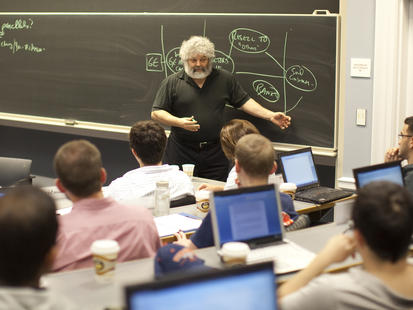
Foundational Idea
Stakeholder Theory
Stakeholder Theory
Stakeholder Theory is a view of capitalism that stresses the interconnected relationships between a business and its customers, suppliers, employees, investors, communities, and others who have a stake in the organization.
The Past, Present and Future of Stakeholder Theory
In 1984, R. Edward Freeman originally detailed the Stakeholder Theory of organizational management and business ethics that addresses morals and values in managing an organization. His award-winning book Strategic Management: A Stakeholder Approach identifies and models the groups which are stakeholders of a corporation, and both describes and recommends methods by which management can give due regard to the interests of those groups.
The theory has become a key consideration in the study of business ethics and has served as a platform for further study and development in the research and published work of many scholars, some which is listed in the Resources section.
Since the 1980s, there has been a substantial rise in the theory’s prominence, with scholars around the world continuing to question the sustainability of focusing on shareholders’ wealth as the most fundamental objective of business.
Professor Freeman believes the time is now for a new story of business, and he is at the forefront of a team of Darden experts advancing that new story through research, course work and events.